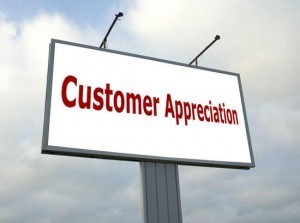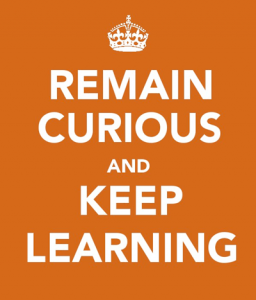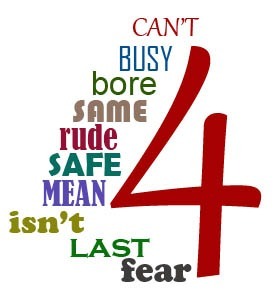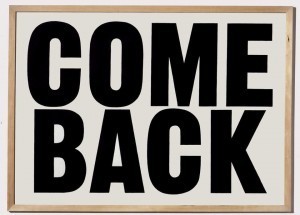Harvey MacKay's Blog, page 13
March 6, 2013
Ask an Old Grizzly
The ability to listen to others is not, typically, the entrepreneur’s greatest strength.
If you’re the oldest guy in the shop, if you’re the one others turn to when they want to hear about the “old days,” it’s time to find yourself an even older grizzly.
When I first bought Mackay Envelope, I was twenty-six. My lawyer, the one I hired after I fired the young hotshot who told me not to buy the envelope company, was sixty. My accountant was fifty-eight, and my banker would admit to being seventy, but I think he was closer to eighty. They didn’t know a thing about the envelope business, but they didn’t need to. They had seen enough business problems in their lifetimes to be able to deal with anything imaginable without knowing the ins and outs of my particular industry.
Though everything that happened to me in my first five years of business was new to me, nothing was new to them. And even when I didn’t take their advice—and often I didn’t—they were a calming and reassuring influence. And that’s something every businessperson, novice or experienced, has need of from time to time.
I’m a bit past twenty-six now and getting closer to old-timer status myself, but if I learned anything from those old-timers, it was that I didn’t have to shoulder the whole load alone. There are a lot of qualified advisers out there to help… if we only ask them. Try it sometime. Thinking of adding a new product line? Considering relocating your plant? Afraid to take a strike, but feel in your gut you should? Making an acquisition? You’re not the first person who’s had to wrestle with those problems. Ask an old grizzly. You may have to listen more than you talk, but that won’t hurt you either.
Excerpted from Swim With The Sharks Without Being Eaten Alive
The post Ask an Old Grizzly appeared first on Harvey Mackay.
February 24, 2013
Visualize Success
 One of the best ways to use your imagination is to visualize or fantasize success. Long ago I came to realize that projecting myself into a successful situation was the most powerful means of attaining my personal goals.
One of the best ways to use your imagination is to visualize or fantasize success. Long ago I came to realize that projecting myself into a successful situation was the most powerful means of attaining my personal goals.
That’s what a placekicker does when he comes on the field to kick a winning field goal. Three seconds left in the game… 80,000 screaming fans… 30 million people watching on TV… and the game is still in balance. As the kicker begins his moves, he makes the hundred tiny adjustments necessary to achieve the mental picture he’s formed in his mind so many times—a picture of himself kicking the winning field goal.
The ability to project is a common trait among all great athletes. They have vision. They see things happening a split second before they actually do.
Jack Nicklaus, one of the greatest golfers of all time and a PGA Tour Hall of Famer, was asked about his tremendous success, especially in making crucial tournament-winning putts. He thought about it for a bit and said, “I never missed a putt in my mind.”
Nicklaus is not considered to be the best at hitting his woods, long or short irons, or even at chipping and putting. But almost everyone considers him the greatest thinking golfer of all time. There has simply been no equal at the mental part of golf, which for me is half the game.
Thomas Watson Sr. was 40 when he took over as general manager of a little firm that manufactured meat slicers, time clocks and simple tabulators. He had a vision for a machine that could process and store information long before the computer was a commercial reality. To match his lofty vision, Watson renamed his company International Business Machines Corporation. Toward the end of his life, Watson was asked at what point he envisioned IBM becoming so successful. His reply was simple: “At the beginning.”
Fred Smith’s vision for a nationwide overnight express air-delivery service was first unveiled in the early ‘70s in a term paper for an economics class at Yale University. Unfortunately, his professor didn’t share Smith’s excitement, and gave him a C. Smith, however, took the idea and created an exceptional company known as Federal Express.
The renowned religious leader Billy Graham prayed, “God, let me do something, anything, for You.” That attitude allowed Billy Graham to find a vision that drove his life.
The ability to visualize something better in the world is the cornerstone of countless other success stories. For example:
Henry Royce was unwilling to accept anything but automobile perfection, and the Rolls-Royce remains an emblem of the exceptional today.
Orville and Wilbur Wright were inspired at a children’s birthday party when they saw a toy with a wound-up rubber band take to the air. They turned that inspiration into a reality.
Marie Curie held high her commitment to scientific excellence in spite of doubters, and she made important discoveries until the day she died.
Such successful people were able to visualize—above and beyond the majority of folks—a condition that was just right. They taught us that a vision begins with imagination coupled with a belief that dreams can one day be realized.
And a man by the name of Viktor Frankl owed his 92-year-long life to his ability to project himself. He was a renowned Viennese psychiatrist before the Nazis threw him into a concentration camp. I heard him speak some years ago, and he held the audience spellbound.
Viktor Frankl’s words: “There’s one reason why I’m here today. What kept me alive in a situation where others had given up hope and died was the dream that someday I’d be here telling you how I survived the concentration camps. I’ve never been here before. I’ve never seen any of you before. I’ve never given this speech before. But in my dreams I’ve stood before you in this room and said these words a thousand times.”
Mackay’s Moral:
People begin to become successful the minute they decide to be.
Excerpted from: The Mackay MBA of Selling in the Real World
The post Visualize Success appeared first on Harvey Mackay.
February 20, 2013
Now That It’s February, Happy New Year
 If you ask the attendant at your health club what the busiest day of the year is, he’ll tell you it’s the day after New Year’s. That’s when all the New Year’s—resolution types pour in. By February only a handful are left. Now that New Year’s Day is well over, tell me, how many of those resolutions have you kept? How many can you even remember?
If you ask the attendant at your health club what the busiest day of the year is, he’ll tell you it’s the day after New Year’s. That’s when all the New Year’s—resolution types pour in. By February only a handful are left. Now that New Year’s Day is well over, tell me, how many of those resolutions have you kept? How many can you even remember?
Maybe you could use a new set. This time, you won’t have to fight the crowds.
1. I will improve my listening skills.
I will remind myself that I can’t learn anything when I’m doing the talking. I will abandon my phony “open door” policy and establish specific meetings and set aside specific times so that others can have real access to me. I will break down barriers. I will try to end the “not invented here” syndrome and encourage the free flow of information across departmental and hierarchical lines. I will answer my own phone… well, I will answer it more often.
2. I will improve my professional skills.
I will cease to be a pothole on the information highway. I will not allow myself to become one of these old fuddy-duddies who brag about their inability to operate modern business equipment. I will get up to speed in computers and communications equipment. Nobody should come into the twenty-first century without being computer literate.
3. I will improve my reading skills.
Unfortunately, my reading ability has slowed down over the years and it is taking me longer to absorb less. I will take a speed-reading course. Instead of reading what merely confirms my existing prejudices, I will search out material that introduces me to new ideas and new ways of thinking.
4. I will waste less time.
I will use my computer time to read more or to listen to audio tapes that can help me improve my skills and broaden my understanding.
5. I will exercise regularly.
I will do so to the point where I become “positively addicted.” I know exercise not only improves my health but helps me maintain a high level of performance on the job.
6. I will encourage risk taking.
I know that many businesses fail from lack of boldness rather than from trying something new. I will not punish or ridicule honest mistakes. I love my work. I want others to feel the same about theirs, so I will try to make my workplace fun and exciting, not just a paycheck.
7. I will put into practice a plan to become the sole source of supply to my largest customers.
The most important element of my plan is to treat my customers as though I were their most dedicated employee and consultant, ready to serve them in every way, so they feel my company is practically a division of their company.
8. I will be committed to growing and improving every facet of our business.
I want every employee in my company to know we are open for hire eight days a week, 13 months a year. I want them constantly to be on the lookout for good people to become part of our team.
9. I will contribute to my community.
I will be a giver. I will give money. I will give time. I will try to make a difference. I want to help make the place I live become a better place for everyone.
10. I will not neglect my family in pursuit of the almighty dollar.
I will never forget that they do more to keep me on an even keel and bring more genuine happiness into my life than any business success I can ever achieve. So Carol Ann, David and Virginia, Mimi and Larry, Jojo and Michael, make room for me. I’m on my way home.
Mackay’s Moral:
Start your new year today. And remember, anyone can make a resolution. Very few people can keep one.
Excerpted from Pushing The Envelope All The Way To The Top
The post Now That It’s February, Happy New Year appeared first on Harvey Mackay.
February 11, 2013
Knowing Something About Your Customer Is Just As Important As Knowing Everything About Your Product
 Knowing something about your customer is just as important as knowing everything about your product. Take politicians, for example. A politician will support your proposition only as long as it is politically popular or uncommonly rewarding.
Knowing something about your customer is just as important as knowing everything about your product. Take politicians, for example. A politician will support your proposition only as long as it is politically popular or uncommonly rewarding.
That isn’t to say that pols are any less honest or reliable than the rest of us. It’s just that politicians must shift positions constantly to keep up with the people they are supposed to be leading. Legislators, particularly in faraway places such as Washington, tend to be a little less reliable than governors, who are under closer local scrutiny, but the same principle holds. It is the duty of someone who wants something from a politician either to (a) create the public climate that makes supporting that position attractive, or (b) do whatever is necessary so that a politico will return a favor from time to time—like fundraising or even organizational work.
Before you choose one tactic or the other, you had better be certain with whom you are dealing. In this case, the governor was the type of politician who thought he had something his constituents would truly want. The Ghermezians and the governor both went public together, and when it became rapidly apparent that the brothers had not created the proper climate of public opinion, the governor backed off.
To the Ghermezians’ credit, they finally got the message, hired local lobbyists, and put the pieces back together. After having asked for several hundred million dollars at the legislature and getting completely skunked, they got help at the municipal level. The current scaled-down version—call it a mini mega-mall—could have been even bigger. In fact, the Ghermezians created the 5.3-million-square-foot West Edmonton Mall in Alberta, Canada, the largest shopping center in the world, starting in 1981.
Identifying the customer does not mean that you make your pitch directly to that customer. Selling the governor in this case was easy… too easy. What the Ghermezians should have done was first build a support structure of “influencers” around that governor—the press, the unions, popular opinion, his own party, and so on—before pitching the main man. That involves a professional PR effort: stories extolling their already successful mall; leaks about competing cities plotting to sweep the Ghermezians into their fold; orchestrated demand for the product from leading opinion-makers. None of this groundwork was laid. Unfortunately (for the Brothers Ghermezian), once the governor discovered he had no crew, it was time to abandon ship.
At Mackay Envelope Company, you wouldn’t believe how much we know about our customers. The IRS wouldn’t believe how much we know about our customers. All our salespeople on our staff fill out a 66-question profile of each one of their customers. We’re not talking about the customer’s taste in envelopes, either. We want to know, based on observation and routine conversation, what our customer is like as a human being, what he feels strongly about, what he’s most proud of having achieved, and what the status symbols are in his office.
When you know your customers, some of their special interests or characteristics, you always have a basis for contacting and talking to them. I have a customer who’s a devoted Chicago Cubs baseball fan. The Cubs’ failure to make it to the top continues. That’s usually good for at least half a dozen condolence messages a year. I don’t sit there scribbling notes about the latest fashions in envelopes. I write about the Cubs; he writes about the envelopes.
I have another customer who’s a stamp collector. No matter where I go, all over the world, I send him unusual and exotic stamps. I think he must like that. He’s been a customer for nearly forty years, and in all that time, I’ve met him only once.
Knowing your customer means knowing what your customer really wants. Maybe it is your product, but maybe there’s something else, too: recognition, respect, reliability, concern, service, a feeling of self-importance, friendship, help—things all of us care more about as human beings than we care about malls or envelopes.
Excerpted from Swim With The Sharks Without Being Eaten Alive
The post Knowing Something About Your Customer Is Just As Important As Knowing Everything About Your Product appeared first on Harvey Mackay.
February 4, 2013
Take a Lesson from My Folks: Never Stop Learning
 If at first you’re afraid to fail, then you won’t ever succeed.
If at first you’re afraid to fail, then you won’t ever succeed.
One of the greatest things my parents did for me was to encourage every one of my ambitions, even if they appeared to be overreaching. They listened to my dreams of being a golf champ or a basketball pro, cheered them on, and then—what really counted—put their money where their mouths were. They made those dreams seem a lot more attainable by giving me lessons in golf and basketball.
I don’t think my folks gave me those lessons because they shared my fantasies of becoming the next Ben Hogan or George Mikan. They did it so I could find out how to be the best Harvey Mackay possible.
From the age of seven or eight, I had lessons, in addition to golf and basketball, in boxing, dancing, swimming, skating, skiing, tennis, baseball, Ping-Pong, and bowling. I also got help from experts in public speaking, piano playing, and writing. And I have no doubt that if I had expressed interest in card tricks, scuba diving, or astronomy, they would have found teachers for those, too.
Yes, I was privileged, but I see plenty of dads and moms making sure that their kids get to Scouts and Little League and community programs, motivated by the same good reasons as my folks: to give their children knowledge and to create a habit of learning.
There is more to learn today than ever. As the amount of information in the world doubles approximately every five years, it takes more and more effort just to run in place. Moreover, companies are cutting back, trying to do as much or more with fewer people. The more talents you have, the more valuable you are. Finally, if you want to attract and retain increasingly knowledgeable, intelligent, demanding, and sophisticated customers/consumers, you have to be as smart as they are.
That’s why my parents’ support has proved so valuable. Some of the lessons they encouraged sharpened the skills I was born with. Some developed abilities I might never have had. But they also taught me to enjoy learning for its own sake.
I learned what a pleasure it is to be taken seriously. Any coach worth his salt has an emotional and psychological investment in his players that’s often as rewarding as the play itself. There is nothing as ego building, as challenging and inspiring to a kid as having a grown-up treat him or her as if what he or she does really matters.
I learned that whatever you do is a lot more enjoyable when you do it well. It’s fun to go to a golf driving range and hit a bucket of balls. It’s a lot more fun to hit them so they travel exactly where you want them to go. What I learned in those long-ago sessions is very much with me today. Forty years ago, I took at least 100 golf lessons from the dean of Minnesota golf professionals, Les Bolstad. I still refer to my notes of yesteryear, and they continue to increase my knowledge and pleasure in the game.
I learned how much pleasure it is possible to derive from work. Many young people seem to think that once you leave school and enter the world of work, your horizon becomes narrow and grim. But working with professionals in any field, and observing how much they enjoy what they’re doing, gives you an incredibly positive notion of how life can be lived.
Most important, I learned not to be afraid to try something new. Obviously, I wasn’t equally competent at everything I tried. But I certainly realized my capacity to be a beginner at anything. A friend of mine once told me that she was too afraid to take an art history course in college because of the lab requirement. Artistic ability wasn’t required—you just had to cut and paste, the idea being that you would learn something about Monet’s and Mondrian’s composition by moving shapes around by yourself—but my friend couldn’t muster the courage to take that course. She was afraid to fail. This is the greatest handicap of all.
Mackay’s Moral:
Be like the turtle… if it didn’t stick its neck out, it wouldn’t get anywhere at all.
Excerpted from Pushing The Envelope All The Way To The Top
The post Take a Lesson from My Folks: Never Stop Learning appeared first on Harvey Mackay.
January 29, 2013
Comeback Kids Don’t Kid Around
The great jazz vocalist Billie Holiday used to quip, “I’m always making a comeback, but nobody ever tells me where I’ve been.” Today celebrities have a tougher time coming back. That’s especially true when they’re rebounding from scuffles with the law. People may forget, but the Internet has one heck of a memory. Blemishes are forever. Or are they? Two mega-celebrities have shaken up the rules.
Michael Milken, the king of junk bonds, and Martha Stewart, the queen of julienned beans, have crafted earthshaking turnarounds. You may never expect to be sent up the river. Still, there’s plenty to learn from how these two tackled adversity. Both have proven to be masters of selling their new identities to a skeptical and often cynical public.
Rudy Giuliani—then U.S. Attorney in New York—prosecuted Milken on a slew of securities-related violations. Milken pleaded guilty and was sentenced to prison for 10 years but was released after 22 months. He was ordered to pay $600 million in settlements and fines.
After prison, the real lightning hit. Within weeks of being released, Milken was diagnosed with prostate cancer. He underwent treatments and radically changed his lifestyle. He beat the disease, but Milken didn’t stop there.
Mike Milken reorganized the war on cancer. He founded the Prostate Cancer Foundation. It’s the world’s biggest source of prostate cancer research funding. His management savvy at the helm of this foundation has accelerated the pace of prostate cancer research. Experts say he’s a force in cutting cancer fatalities. Fortune magazine even put him on its cover, dubbing him “The Man Who Changed Medicine.”
Martha Stewart’s tapestry has a different weave. In Martha’s kitchen, her sticky stock deal couldn’t have been smaller potatoes. It was the arrogance people saw in her that fried the public. After a testy trial, some were happy to see Martha hauled off to the slammer.
Martha Stewart could have stewed away her time in stir. Instead she foraged for dandelions and other salad fixings in the prison yards. Martha took up crocheting. She read books and practiced yoga. While she was briefly out of circulation, Sears and Kmart sealed a merger that would put Martha’s merchandise in front of millions more eyeballs. Not bad for an alumna of a lockup cleaning crew
Comebacks don’t just happen. They require thoughtful planning and a keen eye for learning and changing how you’re regarded.
Take your medicine. In many people’s judgment, Martha Stewart did plenty of stupid things. But she did one smart one. She served her time quickly and got the ordeal behind her. She read the handwriting on the wall. She knew every day she wasted fighting the verdict would deteriorate her credibility and her assets.
Win over your worst enemy. Take a guess: Which one person would never be a Milken booster? If you bet on Rudy Giuliani, you should have folded. Giuliani is also a fellow prostate cancer survivor, as am I. Giuliani has written that Milken’s assault on prostate cancer has made him “an extremely effective advocate… Milken not only faced up to a deadly disease but is doing a great deal to help others do the same.” Do good, and the world will come around.
Respect the public will. Milken bonded with prostate cancer victims. Martha Stewart brought attention to the plight of female inmates. When the tide turns against you, go with the flow. That holds for small things as much as big ones. Let’s say there’s a plan to increase the dues in your club. You’re the only member to oppose the hike. The dues are raised. Be the first to pay the increase. People won’t remember you as a curmudgeon. They’ll peg you as a team player.
Change what you’ll be remembered for. Mike Milken could have embedded himself in history as a Wall Street rogue. Instead, he looks like he’s working overtime to become the next Alfred Nobel. And who knows—Milken may just reach his goal.
Mackay’s Moral:
When you stumble, nothing beats being humble.
Excerpted from: The Mackay MBA of Selling in the Real World
The post Comeback Kids Don’t Kid Around appeared first on Harvey Mackay.
January 21, 2013
There Is No Such Thing as a Bad Memory
 Little Johnny, in sixth grade, came home with a report card that was all D’s and F’s. His father asked why. “I can never remember anything,” answered Johnny.
Little Johnny, in sixth grade, came home with a report card that was all D’s and F’s. His father asked why. “I can never remember anything,” answered Johnny.
The old man said, “Well, you’re not going to any more baseball games until you get your grades up. And to begin with, forget tonight’s game.”
“Now, wait a minute,” said the kid. “You can’t do that to me. The Astros are in town. Clemens is pitching I looked hi up on the Web this morning. He’s allowed only 43 earned runs all season, and he has pitched 143.1 innings. That’s with 147 strikeouts, and Roger has booked 12 wins already.”
Can’t remember?
A man I know can’t remember the name of the secretary of state, but he remembers the lyrics to every song Irving Berlin ever wrote. Let me add that Einstein couldn’t remember his own phone number. “Why should I bother,” he said, “when I can look it up?” The things he did remember, nobody could look up unless Einstein himself wrote them down.
Nobody expects you to always remember the names of your customer’s kids, but that doesn’t mean you can’t have them dancing right off the end of your tongue when you need them—if you use the Mackay 66.
You write them down immediately after you leave your meeting with your customer. They go straight onto the form. Five minutes before you walk into his office the next time, you review that form and you’re a genius… or at least you appear to be.
Don’t try to rely on your memory for stuff like that. Pale ink is better than the most retentive memory. Use the Einstein approach. He was no dummy. If it’s written down, you can look it up. Just be damn sure you write it down.
Excerpted from Swim With The Sharks Without Being Eaten Alive
The post There Is No Such Thing as a Bad Memory appeared first on Harvey Mackay.
January 15, 2013
“Nothing Is Greater to One Than One’s Self Is” – Walt Whitman
The next time someone calls you a one-way, egotistical son of a bitch, don’t forget to thank them. They have just provided a strong endorsement of your mental health. “Self-esteem” is a buzz word these days, and it’s about time. The higher it is, the better you get along with yourself, with others, and the more you’ll accomplish.
Humility is the most overrated of human emotions. The two worst human failings, many of us were taught when we were young, are lying and bragging. I’d rather stick with Will Rogers, who said, “If you done it, it ain’t bragging.”
What’s the matter with being proud of what we have done or think we can do? In my opinion, humility is what our parents and teachers try to stuff us with when we’re six years old to make us easier to handle, but it’s unnatural. When we’re young, we’re full of the sense that we can and should be able to do almost anything.
Dr. Anthony Greenwald, a psychologist at the University of Washington, sees the “egocentricity bias”—the reinterpretation of events to put ourselves in a favorable light and the belief we have more control over events than we actually do—as a sign of mental well-being.
That makes perfect sense to me. Dr. Greenwald can call it the “egocentricity bias,” but I call it optimism. And I call optimism a quality that consistently delivers results. Did you ever get a good performance out of a pessimist? (By the way, no one ever called himself a pessimist. Pessimists always call themselves realists.)
Optimism involves self-delusion, a belief that our own abilities are superior to the obstacles that logically should overcome us. But that’s exactly what’s needed to perform any heavy-duty assignment.
How can you be any good unless you think you can accomplish what you’re not supposed to be able to accomplish? Top performers in athletics or business are always convinced they can be heroes, even if they don’t shout it from the rooftops. And it shows. In fact, baseball scouts call that look “the good face,” the sense of self-confidence that radiates from winners.
Don’t let the “egocentricity bias”/optimism be snuffed out in you. It’s a hell of a lot more productive than humility.
Excerpted from Swim With The Sharks Without Being Eaten Alive
The post “Nothing Is Greater to One Than One’s Self Is” – Walt Whitman appeared first on Harvey Mackay.
January 7, 2013
Watch Out for These Four-Letter Words
 There are certain four-letter words that have no business in business. Many, in fact, are bad for business—so bad that using them may determine whether you stay in business.
There are certain four-letter words that have no business in business. Many, in fact, are bad for business—so bad that using them may determine whether you stay in business.
No, we’re not talking about profanity here—that’s a given. These are everyday words that really smart people eliminated from their vocabularies early on. Let me share some of the most offensive. I’ve even used them in sentences so you can see how to avoid some common mistakes.
Can’t: As in “We can’t do that” or “You can’t expect us to meet that deadline.” Your customers come to you because they think you can do what they ask. If you truly cannot produce what they’re asking for, be honest but then help them find someone who can, even if it’s your competition. They’ll remember that you went the extra mile to make them happy.
Busy: “I’m too busy to do that now” or “I’ll call you when I’m not so busy.” The last thing your customers want to know is that they rank at the bottom of the food chain. It is acceptable to say that you will need a few days to do the job right, or that you’ll knock off a few bucks in exchange for their patience. It is never okay to imply that they aren’t as important as all your other customers.
Bore: “This project is such a bore” or “Don’t bore me with the details.” Unemployment is boring. Try to find something to love about every customer account you serve. An ingenious salesperson always will. Life is too short to be bored or boring.
Same: “We’ve done it the same way for years” or “Same old, same old.” If you’ve been doing something the same way for years, it’s a good sign you’re doing it the wrong way. Maybe it’s time to find a new and better way to do it. People change. Technologies change. Your customers aren’t asking you to dye your hair purple and wear your kid’s jeans. But their businesses change and they’re looking to you to follow—or to lead. You should question why you’re still doing things the same old way
Safe: “Let’s play it safe.” Safe is important in baseball, but in business you must be prepared to take some risks. The scary part about taking risks is that they don’t always work. That said, I’ll take a good calculated risk any day of the week over the boring, same, safe way. Sometimes it’s risky not to take a risk. To triple your success ratio, sometimes you have to triple your failure ratio. Smart customers know this too.
Rude: No example sentence needed here. There is never, ever, ever an excuse to be rude to a customer, coworker or stranger on the street. You’re staking your name on your behavior, and you don’t want your name to become a four-letter word.
Mean: Your lawyer should be mean. Your tennis serve might be mean. You can’t afford to be mean. You are dealing with customers whose business and referrals will determine where your kids go to college and what kind of retirement you can look forward to. If that doesn’t make you nice, I don’t know what will.
Isn’t: “That isn’t our job.” A salesperson’s job description always includes every last chore that’s required to satisfy the customer. You need to take your turn. That’s how you become invaluable to customers. Never pass up the chance to do something new, just because you’re too good. The farther up the ladder you climb, the farther down you can fall. It’s important for your firm to have secure footing on each rung.
Fear: “I fear we may be moving too fast” or “My biggest fear is that we can’t do this” only demonstrate one fact: you haven’t done your homework. Common sense, thorough research and sound advice should allay your fears to a reasonable level. Knowing what is acceptable risk should help too. If your biggest fear is that rain will ruin an outdoor promotion, plan something inside. If you fear your supplers will keep you from meeting a production deadline, find a more reliable supplier. Take charge.
Last: “Nice guys finish last.” I consider myself a nice guy, and I hate to finish last. But I’ve had to lose a few times in order to win the next round. I’ve learned something from every last-place finish.
Mackay’s Moral:
Sticks and stones can break your bones, but these four-letter words will hurt your business.
Excerpted from: The Mackay MBA of Selling in the Real World
The post Watch Out for These Four-Letter Words appeared first on Harvey Mackay.
January 3, 2013
What’s the Best Way to Save Time?
 Spend more time on time management. You’re in as good a position to save time as your richest and most powerful competitors. Over a lifetime, it’s incredible how much time you can save, and the advantages you can achieve, while you’re sitting on your duff in your car. For example:
Spend more time on time management. You’re in as good a position to save time as your richest and most powerful competitors. Over a lifetime, it’s incredible how much time you can save, and the advantages you can achieve, while you’re sitting on your duff in your car. For example:
Use a cell phone… but do it with respect for the posted rules, or you may alienate important people. If you call in your car, use a car phone. Investigate gadgets like a Blackberry that can give you total control over e-mailing and phone lists.
Always phone ahead when you make a call on a customer or a prospect. And, make sure you have both the customer’s landline and cell phone numbers, as well as their e-mail address.
Always park your car in a getaway position.
Use the car’s CD player to listen to disks that teach you something, instead of tuning in to the usual babble on the radio.
Never travel without a PDA or a pocket dictating unit at your side so you can “write yourself notes” while you’re driving.
Add a few noncar time-savers to that list:
Keep that PDA or recorder in your coat pocket or by your bedside. You’ve now doubled the hours you can be getting ahead of the competition.
Plan out your e-reading daily. Have all the important publications logged for instant reference. Rambling through “paper” papers is a luxury of the past. If you’re likely to be waiting in a otel room or a reception area, know exactly which Web address or laptop file you will move to next.
Never go to the bank or the corner ATM machine during Friday lunch hour.
Never have coffee with another salesperson, only with a customer. (Make sure you know which sort of latte they’re nuts about.)
Just for the hell of it—for an entire week—switch your reading plan. Dump the sports section or gossip scoop and read the hometown newspapers of your major customers… or the trade journals of your key customers or suppliers, so that you can learn what they’re worried about. Through Google, you can reach forty-five hundred continuously updated news sources.
Excerpted from Swim With The Sharks Without Being Eaten Alive
The post What’s the Best Way to Save Time? appeared first on Harvey Mackay.
Harvey MacKay's Blog
- Harvey MacKay's profile
- 113 followers






